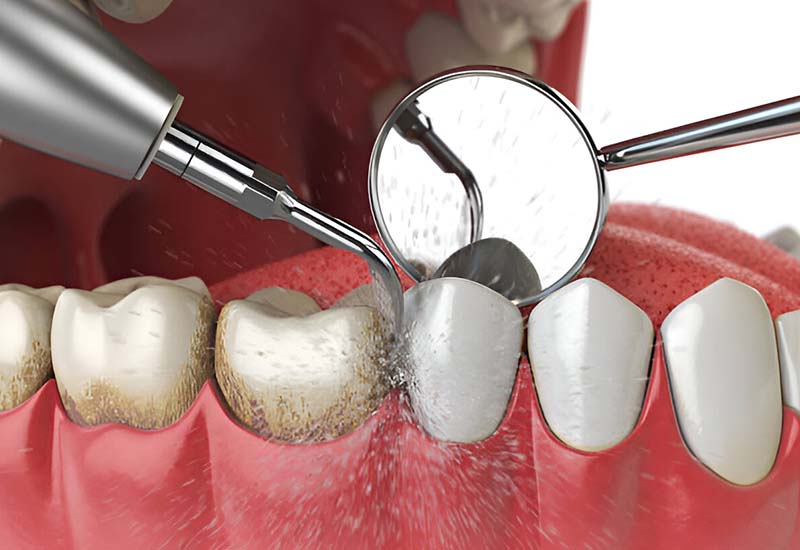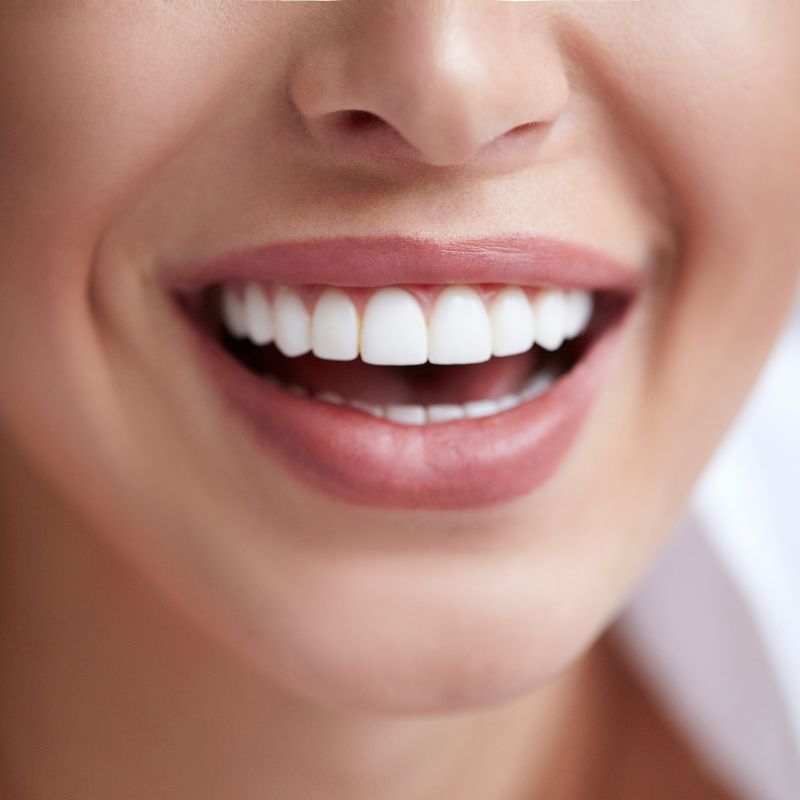Dental Cleanings
Comprehensive cleanings that remove plaque, tartar, and surface stains, helping to prevent cavities, gum disease, and maintain a bright, healthy smile.
Book FREE Consultation
Dental Cleanings
Why Are Dental Cleanings Important?
Even with excellent at-home oral hygiene habits, plaque and tartar can accumulate in areas that are difficult to reach with regular brushing and flossing. Plaque is a sticky film of bacteria that constantly forms on your teeth. If not removed, it hardens into tartar (calculus), which can only be cleaned away by a dental professional.
Without regular cleanings, plaque and tartar buildup can lead to several oral health issues, including:
Cavities
Plaque contains acids that can wear away at your tooth enamel, creating small holes (cavities) that can lead to decay and infection.
Gum disease
If tartar builds up along the gum line, it can cause inflammation and infection of the gums (gingivitis), which, if left untreated, can progress to a more serious condition called periodontitis.
Tooth loss
Advanced gum disease can result in the loss of supporting bone and tissue, ultimately leading to tooth loss if not managed.
Bad breath (halitosis)
Plaque and tartar buildup can cause persistent bad breath, even with regular brushing and flossing.
By scheduling regular cleanings, you can prevent these issues and keep your teeth and gums healthy for years to come.
Dental Cleanings
What Happens During a Dental Cleaning?
At Cloverpark Dental, your cleaning will be performed by a skilled dental hygienist who is trained to provide thorough, gentle care. A typical dental cleaning appointment includes the following steps:

Physical Exam
Before the cleaning begins, the dental hygienist will perform a quick examination of your teeth and gums. Using a small mirror, they will check for signs of inflammation, cavities, or other issues that need attention. If any major problems are detected, the dentist may be consulted before proceeding with the cleaning.
Removal of Plaque and Tartar
The hygienist will use a special tool called a scaler to remove plaque and tartar from your teeth, especially around the gum line and between your teeth. This step is critical because tartar cannot be removed with regular brushing at home. The amount of time needed for this step depends on how much tartar has built up on your teeth.
Gritty Toothpaste Cleaning
After the plaque and tartar have been removed, your teeth will be cleaned with a high-powered electric toothbrush and a gritty toothpaste. This deep cleaning helps remove any remaining plaque and polishes your teeth, leaving them smooth and shiny. While the gritty toothpaste may feel a bit rough, it’s highly effective at removing surface stains and plaque.
Professional Flossing
Next, the hygienist will floss between your teeth to remove any leftover debris and to check the health of your gums. Professional flossing is a good opportunity to remove any particles that may have been missed during your at-home flossing routine.
Rinsing
Once your teeth are clean, you’ll be given a rinse containing fluoride or antibacterial ingredients to remove any remaining debris and leave your mouth feeling fresh.
Fluoride Treatment
Depending on your individual needs, your dentist may recommend a fluoride treatment to strengthen your teeth and help prevent cavities. Fluoride is applied in a gel or varnish form and left on your teeth for a few minutes. This treatment provides extra protection against decay for several months.

Dental Cleanings
The Connection Between Dental Cleanings and Overall Health
Regular dental cleanings do more than just protect your oral health—they also play an important role in your overall well-being. Research has shown that there is a strong connection between oral health and systemic conditions such as heart disease, diabetes, and respiratory infections. By keeping your teeth and gums healthy, you can reduce your risk of these and other serious health problems.
Gum disease, in particular, has been linked to heart disease and stroke. The bacteria associated with gum infections can enter your bloodstream and contribute to the formation of plaque in your arteries, increasing your risk for cardiovascular conditions. Additionally, people with diabetes are more prone to infections, including gum disease, making regular cleanings even more critical.
Frequently Asked Questions About Dental Cleanings
1. How often should I get a dental cleaning?
Most patients should visit the dentist for a cleaning every six months. However, if you have gum disease or are prone to cavities, you may need cleanings more frequently.
2. Are dental cleanings painful?
No, dental cleanings are generally not painful. However, if you have sensitive gums or a lot of tartar buildup, you may experience mild discomfort during the scaling process. Our hygienists work gently to ensure your comfort throughout the cleaning.
3. Why can’t I remove tartar at home?
Tartar is hardened plaque that can only be removed with professional dental tools. Brushing and flossing can help prevent tartar formation, but once it has formed, a professional cleaning is necessary.
Dental Cleanings
Why Choose Cloverpark Dental for Your Dental Cleanings?
At Cloverpark Dental, we are committed to helping you achieve and maintain a healthy, beautiful smile. Our experienced hygienists provide thorough, gentle cleanings in a comfortable environment, ensuring that your dental health is always our top priority.
If it’s time for your next cleaning or you’re looking for a new dental care provider, contact Cloverpark Dental today to schedule an appointment. We’re here to keep your smile healthy and bright.



